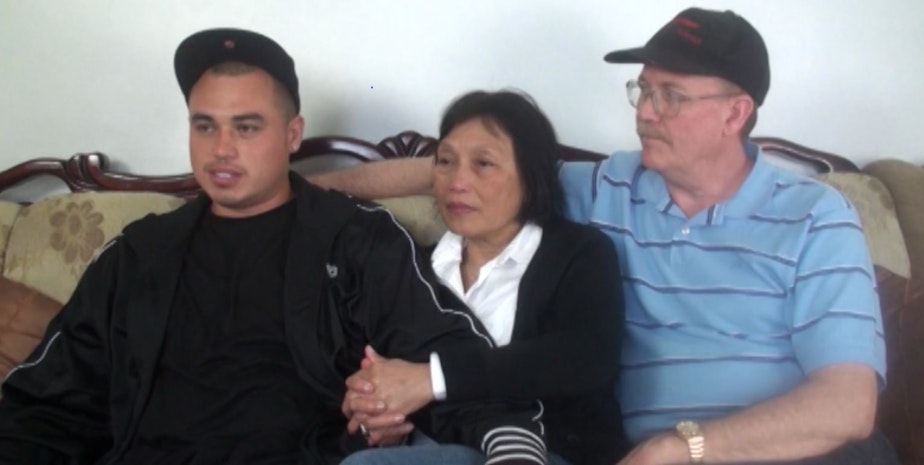Tearful But Not Dramatic: Sentencing Videos Aim To Humanize Defendants

Every sentencing comes down to two things according to attorney Michael Filipovic: Why did this person commit this crime, and why is he not going to do it again?
“Often you can do that in writing or using just still photographs with letters from individuals," Filipovic said. "But sometimes to really get that story across, the video interviews can really drive home a particular point."
Filipovic has been a federal public defender for more than two decades. He said sometimes video helps create context that can’t be drawn out though other media; like in the case of Tommy Sanderson.
Sanderson pleaded guilty in 2011 to selling guns and crack cocaine. During his federal sentencing Sanderson's attorney presented a video to the court that showed Sanderson coaching Special Olympics soccer players.
Sanderson’s girlfriend Camille talked about how they committed crimes because they were addicted to drugs and how they decided to stop using on their own.
“When we finally decided to stop we were living in a car," Camille says in the video. "In his car on the same block as the dope house. Parked in front of an abandoned house. We lived there for a month and it just got a point where we were like, are we just going to do this our whole lives? Or are we going to do something better?”
She's tearful, but not overly dramatic. The video and many like it are straight forward, with no special effects or music. They run about eight minutes long.
There are production companies that specialize in producing the videos, which are also used by prosecutors and personal injury attorneys. But at the Federal Public Defender’s office in Seattle they’re produced in house, made by a team of paralegals and an investigator who took film and screen writing classes to help with production and storytelling.
It’s important that the tone of the video convey not only respect for the court but respect for the crime that’s been committed. “We know our audience," Filipovic said. "This is not an unsophisticated audience, which is another reason we don’t use these in all our cases.”
Filipovic said his office is judicious about using sentencing videos. They've produced just 17 in the last three years. That’s a pretty small percentage of cases considering the office handles more than 500 new clients a year.
In Sanderson’s video his brother Richard talks about how much their relationship has improved since his brother has been clean. Towards the end of the video Sanderson appears to say he’s off drugs and to take responsibility for his crimes.
“Whatever the judge gives me, I just have to face the consequences of what I did," Sanderson says in the video. "Hopefully he sees that I’m not a big threat or whatever to society. But I still did the crime. Whatever happens I just got to deal with it. I’m not going to run away.”
Sanderson appears remorseful. But there’s something else. Something that wouldn’t be apparent in a letter. The way his mom is softly holding onto his arm, the way she nods as he speaks to affirm his statements. Next to her is his dad with his arm around his mom.
The Sandersons present a picture of a good, solid, supportive family. It all leads back to those two key questions.
“If you can answer those two questions for the judge, you go a long way from the defense side of trying to get the judge to understand your client and give a sentence that’s not greater than necessary," Filipovic said. "And I think the videos really help with that in some cases.”
In Sanderson’s case it did. The prosecutor recommended a sentence of 48 months. In the end Sanderson was sentenced to 36 months and three years supervision. He now lives at home with his parents.

